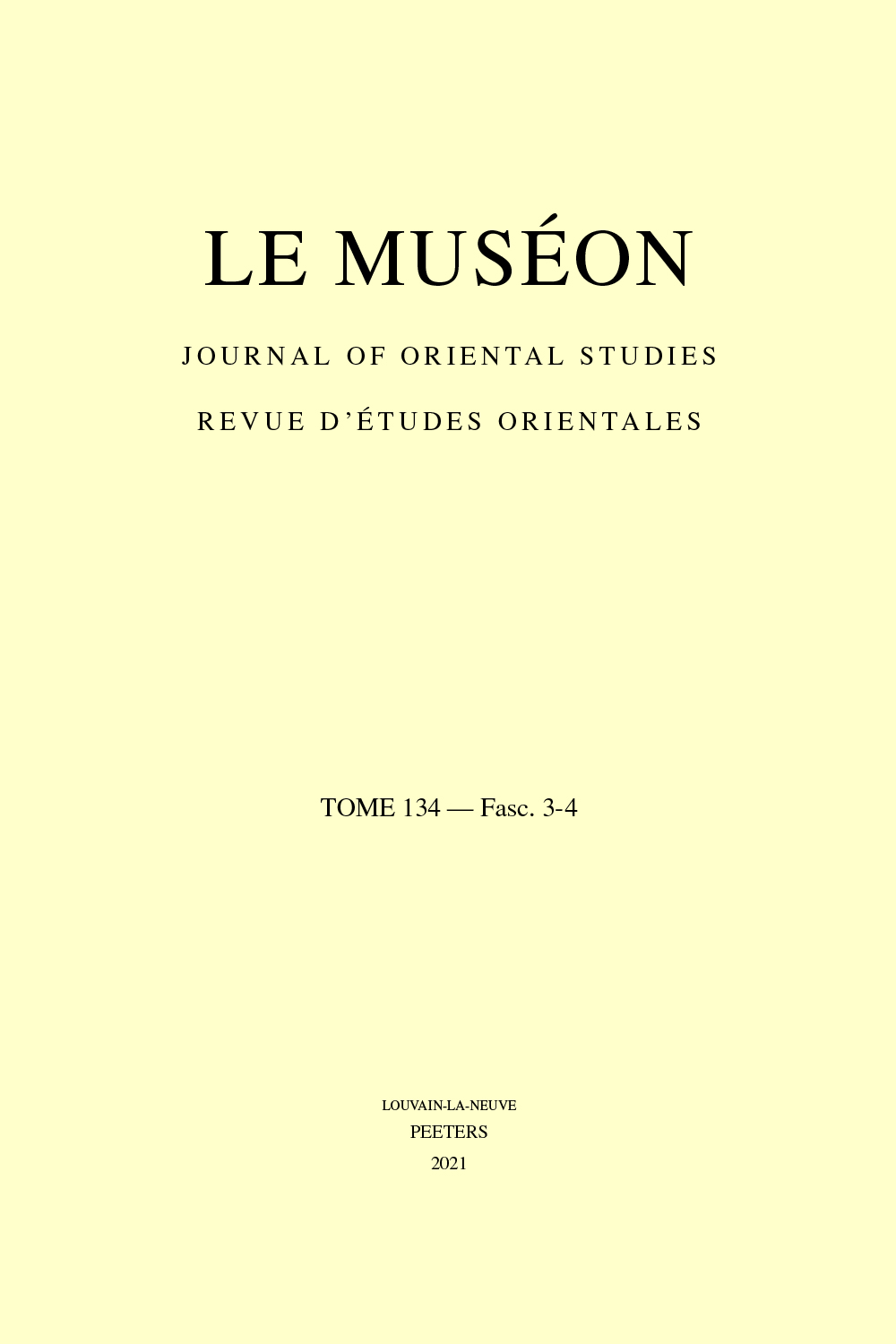 previous article in this issue previous article in this issue | next article in this issue  |

Preview first page |
Document Details : Title: La représentation de la Géorgie et des Géorgiens dans les sources narratives latines du moyen âge Author(s): JAVAKHISHVILI, Manana Journal: Le Muséon Volume: 134 Issue: 1-2 Date: 2021 Pages: 103-128 DOI: 10.2143/MUS.134.1.3289399 Abstract : The information about the Kingdom of Georgia and the Georgians is found in the written medieval sources of Western Europe from the 11th century, from the time of the Crusades. What do the West find interesting in the Kingdom of Georgia? What do the medieval European chroniclers see or want to see while talking about Georgians and the Kingdom of Georgia? What are the key markers of Georgian identity that make Georgians so interesting to them? As a result of studying the issues of Georgia’s denomination, religious identity, geopolitical context and some anthropological information found in Western European sources, the following conclusions can be made: the fact that there was a special cult of St. George in Georgia turned out to be a determining factor of Christian identity of the Georgians for Europeans (the Georgian denomination – Georgiani – is connected with the name of this saint). In addition, St. George was associated with a warrior-knight fighting against the evil ('infidels') and the Kingdom of Georgia was perceived as a kind of defensive wall erected between the Christian and Muslim worlds. Hence, though Georgians were Christians following 'Greek rule', Western authors avoid to attribute the markers of 'schismatics' or 'heretics' to them, or to distance and alienate themselves from Georgians from the religious point of view. The Latin texts demonstrate that despite geographical distance, scarcity of information and mythological representations, the Europeans considered the Kingdom of Georgia a Christian state having fighting values, the alliance with whom in the fight against Muslims would be desirable for Europeans. |
|


